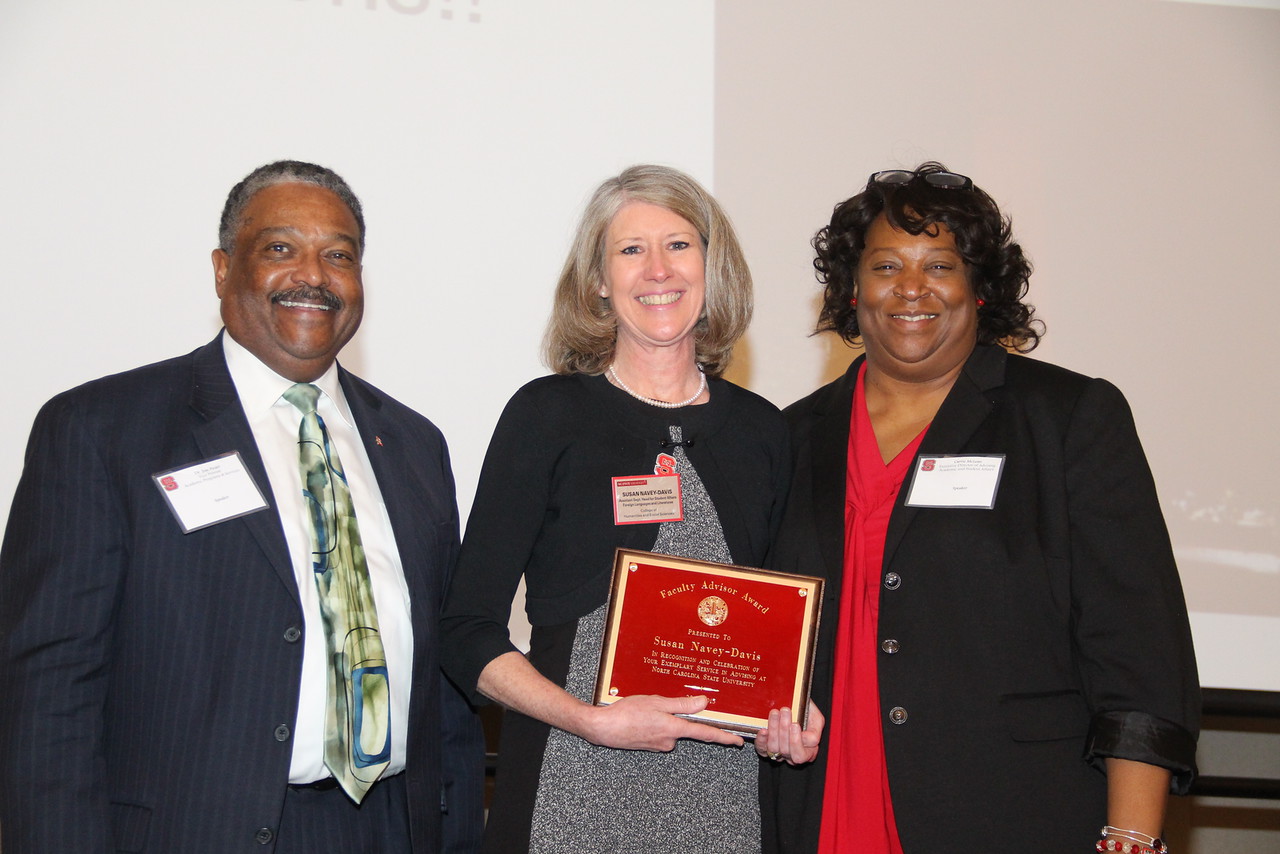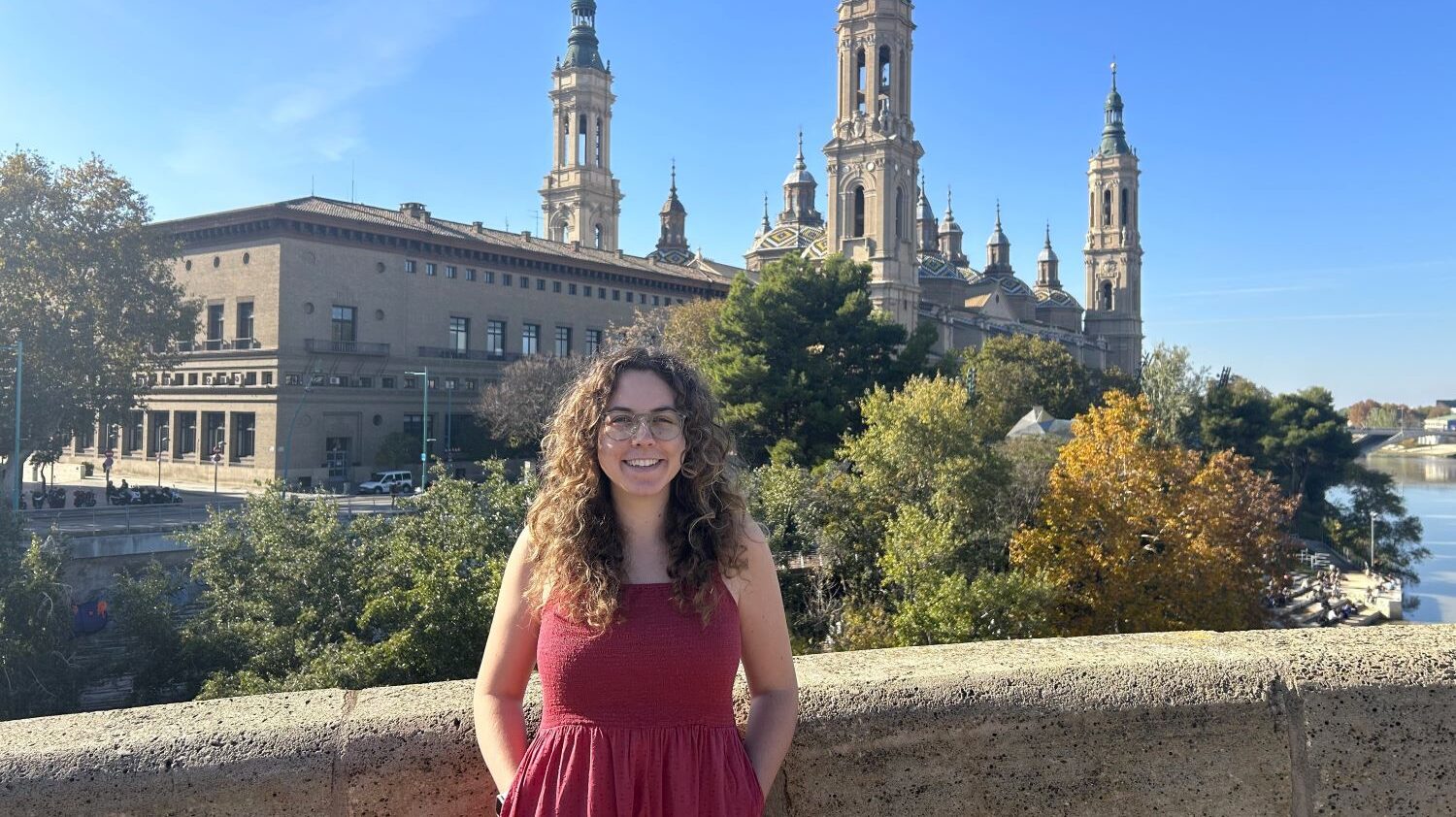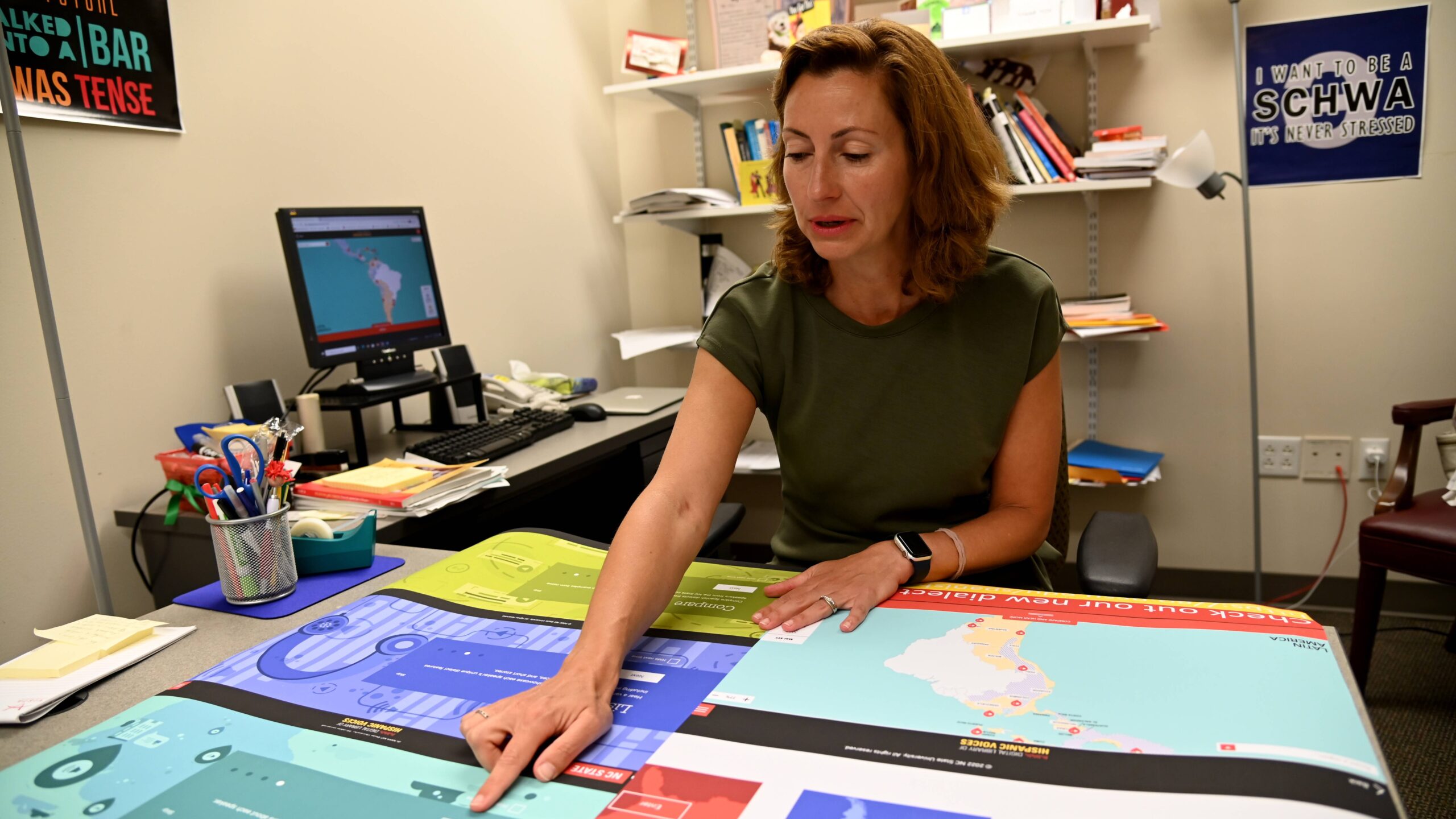In the Spotlight: Susan Navey-Davis, 2014-2015 Faculty Advisor Award Winner

Foreign Languages and Literatures’ Director of Undergraduate Advising Susan Navey-Davis was among five NC State academic advisers who were recently recognized by the Office of Academic Advising Services with the 2014-2015 Undergraduate Advising Awards.
Born in North Carolina, Susan has been teaching for thirty-five years — twenty-eight of them at NC State. For about twenty of her many years at State, she has also been an undergraduate adviser, helping students to make informed decisions about their educational goals as well as monitoring their progress toward graduation to enable their ultimate academic success.
A multifaceted and purposeful professional, Susan has also co-authored three books, one of them a very popular Spanish textbook with a forthcoming 5th edition.
In the following email interview with Samuel F. Sotillo, Susan explains how she helps students in their efforts to acquire lifelong, career-relevant experiences and skills.
— ◊ —
Samuel Sotillo: First, could you tell us a little bit about your background? Where are you from? Where did you go to undergrad and graduate school?
Susan Navey-Davis: I’m from North Carolina and am a graduate of UNC, undergrad and graduate school. I studied in Guadalajara, Mexico but have spent most of my life in North Carolina and South Carolina.
SS: Can you tell us a little bit about how you first got involved in advising students?
SND: I became an academic advisor when I started working with our foreign language education program. It was a new responsibility and a new challenge but it clearly complemented the other work I was doing with students.
SS: In case someone out there doesn’t know, what does a faculty advisor do?
SND: In relatively few words, the faculty advisor helps the student make an informed decision about a major, set educational goals and monitor progress toward the goals, understand university policies and procedures, select courses that lead to achievement of the student’s goals, and take advantage of campus resources and opportunities that support the student’s success. One of the opportunities we highly recommend for foreign language majors is a study abroad experience.
SS: In what ways do you think your work as a faculty advisor and your teaching are connected?
SND: Advising and teaching have a great deal in common. I see advising as another form of teaching. In most cases it does not happen in a classroom but it is a collaborative relationship, like teaching. The objectives must be clear and it is most effective when both individuals have the same goals. Compatible styles help as well, as they do in teaching. I try to be sensitive to students’ needs, particularly how I communicate with them, electronically or face-to-face. Offering positive feedback and establishing a relationship that goes beyond the nuts and bolts of class planning and policy issues can be very helpful. Just as in teaching, a personal touch in an advising situation can make a big difference.
SS: What do you enjoy and find most challenging about teaching? About advising?
SND: The answer is the same for both, working with students. It is challenging and rewarding. Students are smart, funny, and engaging. In my position, every day is unique, as is every student I meet. I never teach a lesson the same way twice and I can never duplicate an advising session. Listening to my students and to my advisees is also crucial. I learn something new every day as a teacher and as an advisor.
“If students enjoy communicating in another language, watching films, listening to music, reading anything from entertaining websites to challenging literature in another language, experiencing the cuisine and similar aspects of other cultures, they should continue their language study, they should study abroad and they should seriously consider a major or at least a minor in a foreign language.”
SS: You also are an author. What do you think that your experiences as a teacher and faculty advisor bring to your role as an author and viceversa?
SND: I am fortunate that everything I do is connected. My work with my textbooks is an outgrowth of my teaching. I use what I do in class to create the books and I improve each edition of a book based on what students do with the activities that I implement in class. Nothing stands alone.
SS: In a different tone, if you could do anything now, what would you do? Why?
SND: I would change very little but I would travel more. I have seen a lot of the Spanish-speaking world over the years but I want to see the parts I have not visited, and other parts of the world. I would also like to learn more languages. Languages truly are the way to know other people and to begin to understand their way of seeing the world.
SS: What is the one thing most people should know about what you do, but don’t?
SND: Perhaps that my job is hard to define and that’s Ok. If someone needs assistance in our department, I am happy for that person to begin by contacting me. If I can’t help, I will do my best to figure out who can.
SS: What’s your favorite book?
SND: It’s hard to choose just one of anything but right now I’m excited about a book written by a former student (I’m a teacher and everything goes back to my students!). It is called Stand Up That Mountain and the author is Jay Erskine Leutze. I think you will be hearing more about it soon.
SS: What are you currently looking forward to the most?
SND: I’m working on the fifth edition of my first book (Plazas: Lugar the encuentros, Cengage Heinle). It’s quite a process so I will be thrilled to see the final product later this year. We are partnering with National Geographic and I believe it will be the best one yet.
SS: Finally, do you have any advice for students who might be thinking about their future career options on why they should consider majoring or minoring in a Foreign Language?
SND: Absolutely! There are so many reasons for majoring and minoring in a foreign language. We hear and read about the advantages of language skills in getting and keeping employment in today’s global economy, about the positive effects of language study on cognitive abilities, about the importance of cross-cultural understanding, and about the compatibility of the foreign language major or minor with many other fields of study during the undergraduate experience. I speak to students about these points all the time and would welcome the opportunity to provide more information to anyone who has questions. I want to end, however, by telling students to do it because they love it. If students enjoy communicating in another language, watching films, listening to music, reading anything from entertaining websites to challenging literature in another language, experiencing the cuisine and similar aspects of other cultures, they should continue their language study, they should study abroad and they should seriously consider a major or at least a minor in a foreign language.
Posted by S.F. Sotillo.
- Categories:


